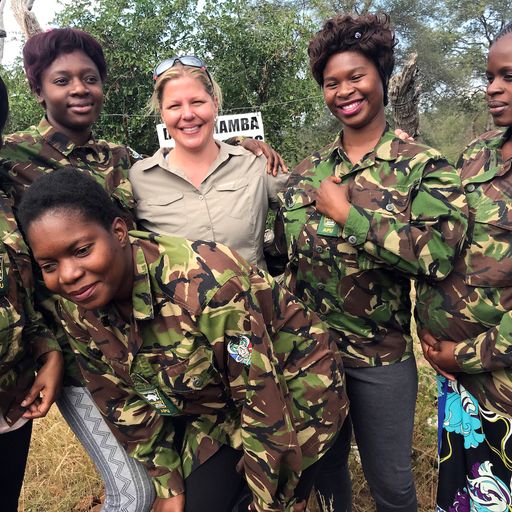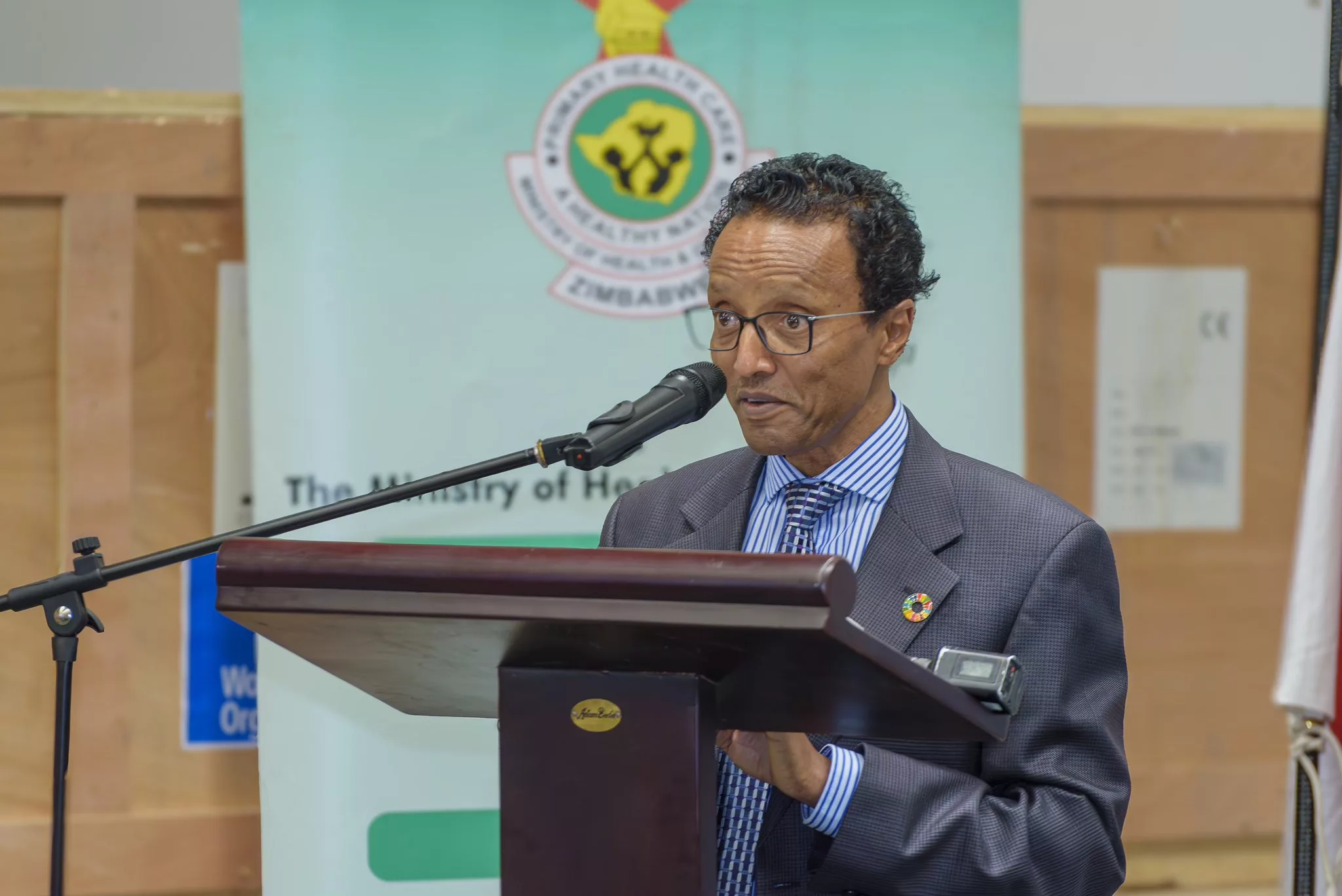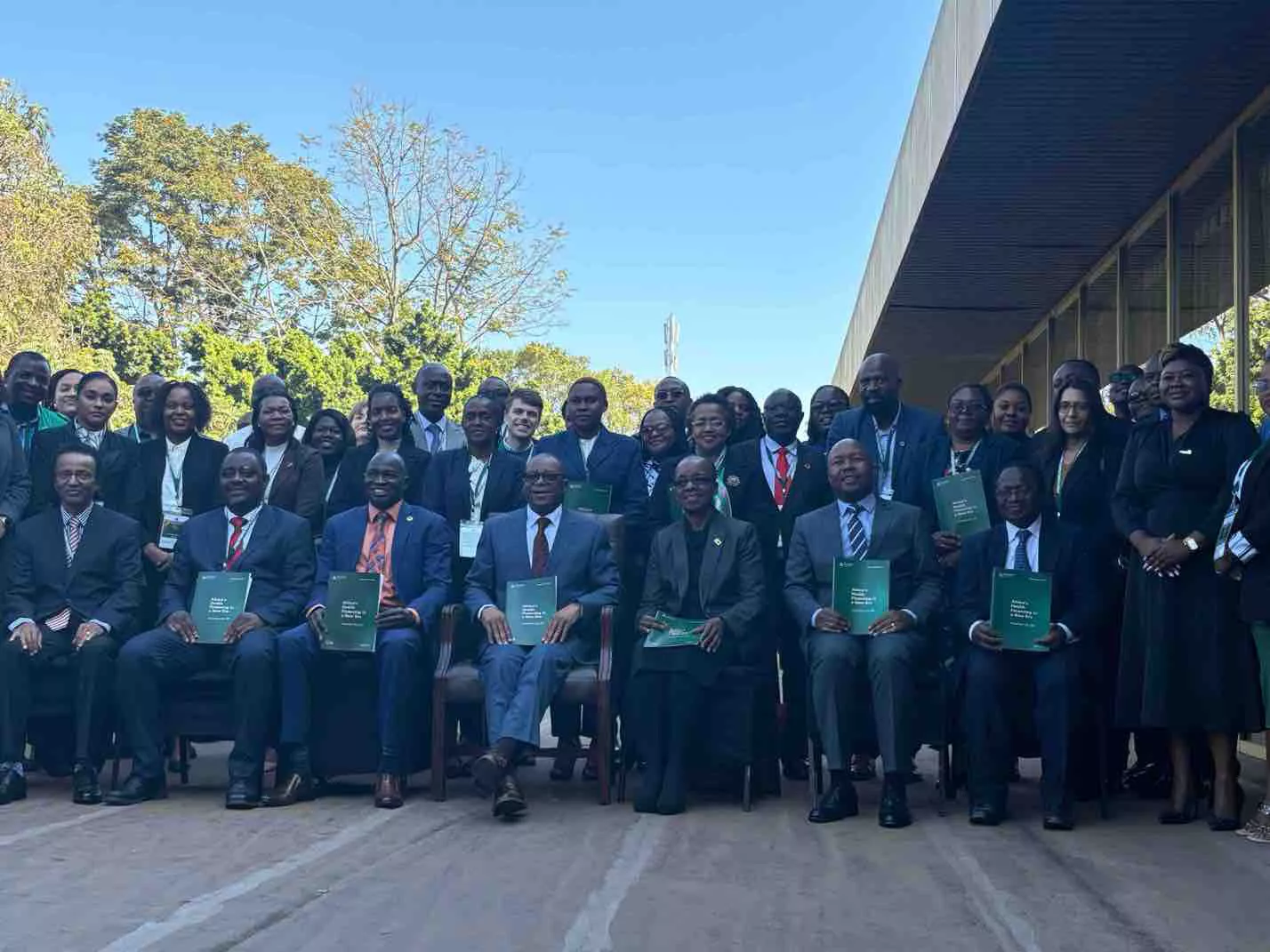|
Getting your Trinity Audio player ready...
|
Writeup by How Many Elephants
Real Women, Real Stories, Real Impact. This pioneering global awareness week, spearheaded by international NGO, How Many Elephants (HME) celebrates and supports female wildlife rangers – They’re bold, changing the game and paving the way for women to stand alongside men at the forefront of conservation, but they need allies.
Building on the success of the inaugural World Female Ranger Week last year, reaching over 500 million viewers worldwide, this year’s campaign is set to be even bigger. There will be online and live events, media interviews, plus a bespoke fundraising platform to raise vital funds for the rangers worldwide.
As champions of wildlife conservation, role models, educators, and as beacons of hope, female rangers are not only transforming attitudes towards the role of women around the world; they are showing the capabilities and success of females in traditionally male roles. However, less than 11% of the global wildlife ranger workforce is female. With women being natural communicators, and protectors and investing their earned income in their families, bringing gender equity into the workforce is enhancing community conservation efforts and relationships.
The founder of How Many Elephants and World Female Ranger Week, Holly Budge says, “Having patrolled with multiple ranger teams across Africa, I’ve seen first-hand how these bold women are impacting lives; Protecting wildlife, uplifting communities and empowering other women. WFRW highlights the significant gender imbalance in environmental conservation. My team and I will continue collating gender-specific data about female rangers globally, enabling us to identify their needs, find tangible solutions, and help build effective policies to contribute towards positive outcomes; for female rangers and conservation as a whole.”
The COVID-19 Pandemic crippled tourism and funding for conservation projects globally. The lack of tourists visiting National Parks led to many rangers losing their jobs or having significant salary cuts. The knock-on effect of this was huge. For example, one ranger in Africa may support up to 16 family members. Additionally, reduced vigilance in tourist hotspots left wildlife even more vulnerable to poaching.
The often-challenging work of rangers is paramount right now. Day and night, female rangers patrol wilderness areas, monitor wildlife, seize snares, work with communities, and in some cases, arrest poachers, all to protect nature. Some rangers are away from their families for long periods, sometimes facing workplace security issues and battling social stigma. Many of these women have overcome adversity, poverty, and marginalisation. Becoming a ranger has empowered them, turned them into breadwinners and property owners, and has allowed them access to higher education and much-needed healthcare.
Holly and her team have identified over 4500 female rangers in 18 African countries so far, and over 5500 female rangers around the world.
Meet some of the African women who give their all to protect wildlife from extinction.
- Zimbabwe: Nyaradzo Hoto
A ranger from the Akashinga Anti-Poaching Unit in Zimbabwe, Nyaradzo (31) was forced to drop out of school and ended up in an abusive marriage. She joined Akashinga in 2017, thanks to her grit and tenacity. She is currently studying Wildlife Ecology and Conservation at the Chinhoyi University of Technology, and her regular income has allowed her to purchase land and build a house. She is a strong role model for women in her community and around the world. She says, “Women are the face of the future. They are the face of conservation because of their heart.”
- South Africa: Leitah Mkhabela
An original ‘Black Mamba’ Ranger, Leitah (28) has been working for Africa’s first all-female team since their inception in 2013. Leitah, a ranger and a mother, says “We cannot do it by ourselves. We need more eyes, and more people helping us. When I started as a Black Mamba, people were scared of the training we went through. People said this training is for men and we couldn’t do it because we are women. The hardest part was that even women were looking down on us. But people started to come around once the impact of the female rangers was clear. It has helped women in the community to see themselves differently. People have seen how we want to do this and so many women started to support us.”
- Liberia: Grace Kotee
Grace (30) is a ranger in The East Nimba Nature Reserve (ENNR) in Liberia. Growing up as a child in a rural village, Grace felt bad when she saw people killing and eating wildlife. She promised she would do something to protect the forest resources of Liberia and the world at large. Grace still battles social stigma as some of her community think that working as a ranger “is not a feminine job” and she is often criticized. “Culture/ society sees a ranger career as a male job and doesn’t encourage me. Sometimes when I am riding my bike they tell me that I will not bear children if I continue.” A few of the challenges Grace faces at work are discrimination from her male counterparts and limited time with my husband and family.
- Zambia: Janet Sakala
Janet (35) is a ranger/dog handler in the K9 Unit for Conservation South Luangwa. Sadly, when Janet was 15 years old, she lost both her parents and was no longer able to go to school. Becoming a ranger has enabled her to become the breadwinner and be able to support her relatives. “One of the biggest challenges I face as a female ranger is that my ideas are not always heard. Communities here in Zambia often consider men to be superior to women and can easily discount the views and ideas of women. We know we are sharing this experience, and whilst we have not overcome this challenge, we know we can if we stay strong.”
- Kenya: Raabia Howa
Raabia founded the Ulinzi Africa Foundation (UAF), East Africa’s first non-profit that focuses on ranger welfare and remote areas. They currently focus on the preservation of the Tana Delta ecosystem, a certified UNESCO – RAMSAR site, and a Key Biodiversity Area, which hosts elephant ‘maternity wards’ and ‘retirement forests’ where the elephants seek shelter and vital nutrient rich flora only found in this area. Raabia’s vision is to transform the Tana Delta from a poaching hotspot into a safe living ecosphere for people and wildlife. She employs a team of 12 male rangers. To date, they have made several arrests and successful recoveries of weapons however are finding that their security is under increasing threat.
WFRW Ambassador, Fiona Jeffery OBE, says “World Female Ranger Week gives recognition and voice to both the courage and outstanding conservation work undertaken by female rangers. Proof that gender equality knows no bounds. I’m proud to be an Ambassador and help champion these incredible women.”
HME welcomes strategic partnerships to expand the campaign’s reach to strengthen the support of female rangers. Businesses and individuals can set up branded fundraising pages via worldfemalerangerweek.org.
About How Many Elephants
The UK registered charity, How Many Elephants (1186238), is a powerful design-led awareness campaign and innovative in its 100% non-gory approach. It showcases the annual poaching rate of 35,000 elephants in Africa in a visual exhibition to inspire and educate a global audience about the devastating impacts of the ivory trade. How Many Elephants collaborates with and supports female rangers on the front line. Read more at www.howmanyelephants.org
About Holly Budge, Founder of How Many Elephants & World Female Ranger Week.
Holly Budge is a world-class adventurer and conservationist, who has been supporting female rangers for almost a decade. She has earned the rare privilege of patrolling on the front line with multiple all-female and mixed ranger teams across Africa. Recently voted as ‘Female Thought Leader in Non-Profit’ this year, Holly is the first woman to skydive Everest and has summited Everest. Through her adventures, she has fundraised over £450K. She founded her NGO ‘How Many Elephants’ in 2013 while studying for a Masters in Sustainable Design and her work has since been highly praised, including by Sir David Attenborough. Read more at www.hollybudge.com
Links:
Instagram & Facebook: @worldfemalerangerweek
Twitter: @femalerangerwk
Hashtag: #worldfemalerangerweek2023






